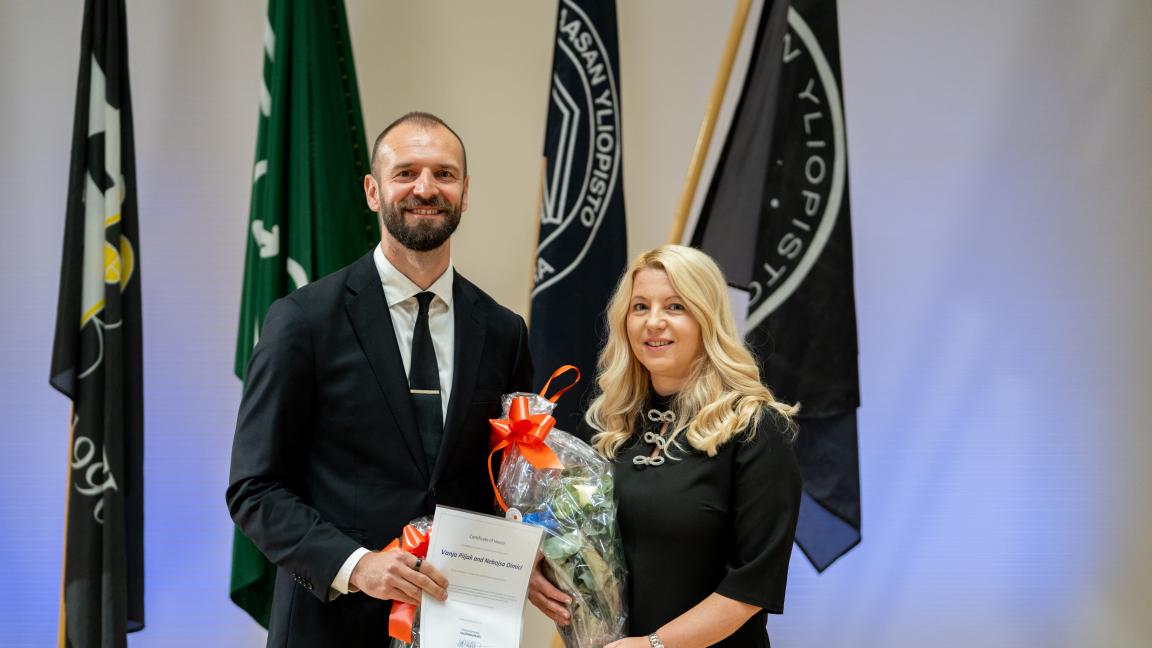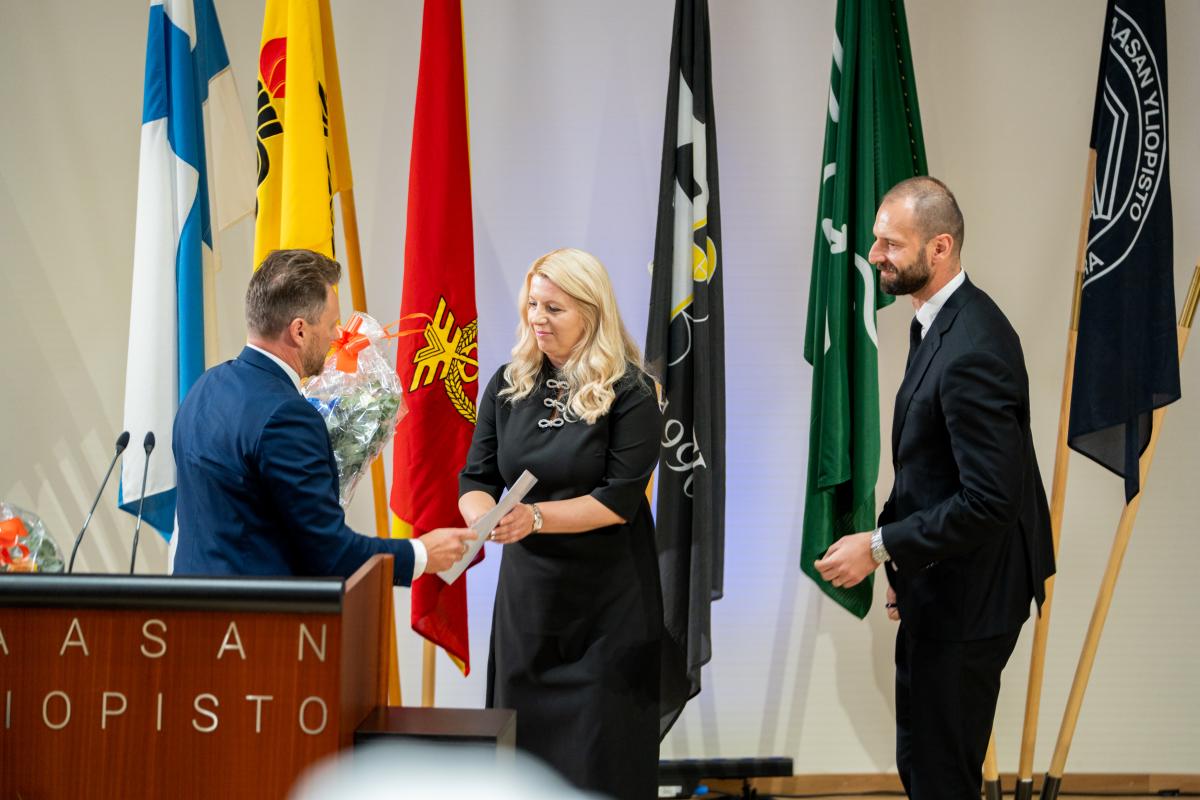Ostrobothnia Chamber of Commerce Award to Vanja Piljak and Nebojsa Dimic: Energy SPACs may bring quick gains but end in disappointment
The article, co-authored by Vanja Piljak and Nebojsa Dimic together with researchers from EDHEC Business School, focuses on energy-sector SPACs (Special Purpose Acquisition Companies). SPACs are shell companies without their own operational activities. They are established to raise capital in an initial public offering and later acquire a company, which is then taken public through the merger. The study examined the returns and governance of energy SPACs between 2003 and 2023. In recent years, a significant share of new SPACs has been linked to the energy sector. The article is published in the respected journal Energy Economics.
Strong returns at first, but long-term risks
According to the results, energy SPACs offer investors good returns in the early stages, when a merger is announced. However, once the merger has been completed and in the longer term, returns turn sharply negative, and within a year investors may lose more than half of their original investment.
– This suggests that the initial optimism of the markets does not translate into long-term success, say Piljak and Dimic.
The study also found that governance and managerial background play a significant role. For example, a foreign CEO background was associated with weaker long-term investment returns in energy SPACs.
The research has practical relevance for both investors and policymakers. For investors, the message is clear: quick gains may be possible with the right timing, but long-term prospects are weak. Policymakers, on the other hand, should work to improve transparency and governance in SPAC markets in order to protect investors.
– Both policymakers and investors should take into account the poor long-term performance of energy SPACs. Promoting good governance practices or improving investor protection could lead to better outcomes in the future, Piljak and Dimic note.
The topicality of the research is underlined by the fact that SPACs have become an important financing channel for the energy sector. The global shift towards clean energy and carbon neutrality requires large-scale capital investments, and SPACs have emerged as a popular vehicle for funding renewable energy start-ups and raising funds for green investments.
– Receiving this award encourages us to continue with research on green finance and current energy-related topics that are highly relevant for society as a whole.
Supporting research on the energy sector
The Ostrobothnia Chamber of Commerce Award is granted each year for research, publications, or dissertations related to the energy sector carried out at the University of Vaasa during the previous academic year. The award has been presented since 2017, established to mark the centenary of the chamber.
– With this award, the Chamber wishes to support valuable research that serves the needs of the energy sector and companies in the Vaasa region, says Mikael Hallbäck, Director of the Ostrobothnia Chamber of Commerce.
According to Hallbäck, the awarded publication is an impressive piece of work that provides new perspectives on decision-making and business models in financial markets for the energy sector.
– The study, for instance, shows that investors should carefully consider governance structures and may prefer energy SPAC mergers with domestic leadership.
Awarded publication
Dimic, N., Hernandez Tinoco, M., Piljak, V., & Vulanovic, M. (2025). Energy SPACs performance and governance. Energy Economics, 145, 108478. https://doi.org/10.1016/j.eneco.2025.108478
Further information
Vanja Piljak, Associate Professor, University of Vaasa tel +358 29 449 8503, vanja.piljak@uwasa.fi
Nebojsa Dimic, Assistant Professor, University of Vaasa, tel. +358 29 449 8516, nebojsa.dimic@uwasa.fi
Mikael Hallbäck, Director, Ostrobothnia Chamber of Commerce, tel. +358 40 595 9706, mikael.hallback@kauppakamari.fi

